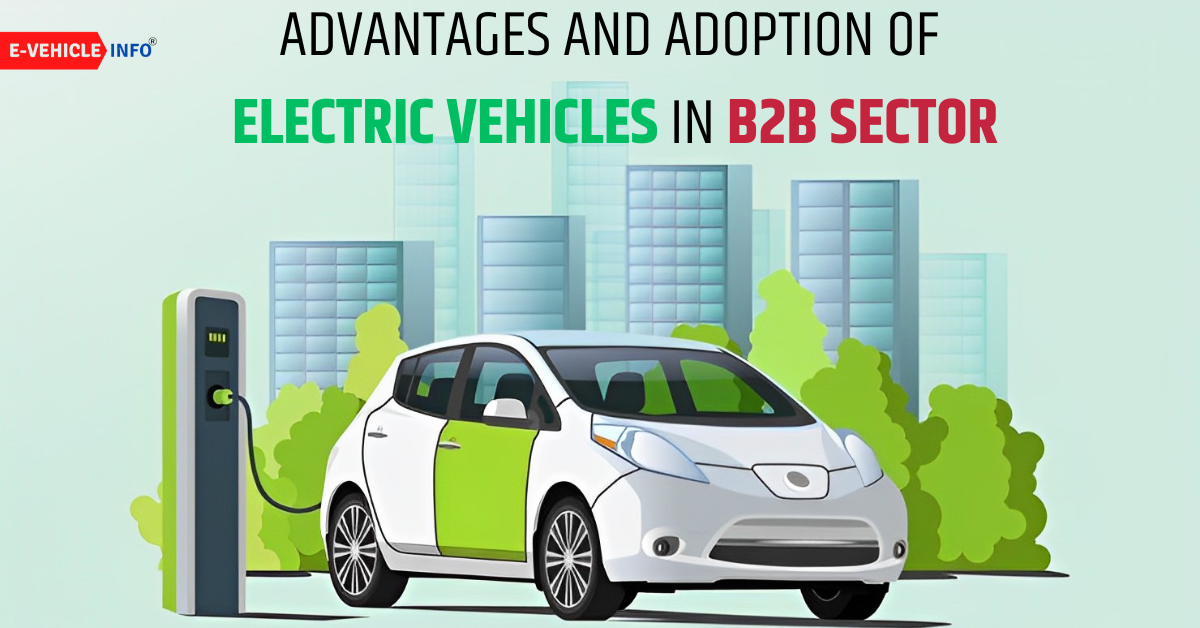
The Advantages and Adoption of Electric Vehicles in B2B Sector
Electric Vehicles in B2B Sector
The corporate employment landscape in India is constantly changing. The Labour Bureau’s first Quarterly Employment Survey (QES) in some years provides new information about the situation of Indian workers in organized businesses with more than 10 employees. After a break since 2017, workforce analysis is once again included in this thorough study, which finds that about 31 million Indians are currently working in these organized enterprises. Notably, around 13 million are supplying their talents to the burgeoning manufacturing industry. Given that India has a workforce of more than 487 million people, second only to China in terms of size globally, this fact becomes more significant.
Ev’s Vital Role in Evolving Business Mobility
EVs are playing a vital role in the evolution of business mobility in India. Road Transport and Highways Minister Nitin Gadkari reported that as of August 3, 2022, there were 54,252 electric vehicles with four wheels or more and 5,44,643 electric two-wheelers registered in the unified VAHAN database. The gap between the number of electric cars (EVs) and conventional automobiles is shown by these facts. Accelerating the adoption of electric vehicles (EVs) is becoming increasingly popular, particularly in the business-to-business (B2B) market. EVs have developed past their status as simple forms of transportation, and now represent a tactical turn toward cleaner and more effective mobility options. Numerous enormous companies, like TATA, Infosys, Reliance, and Adani Enterprises, who employ thousands of people, book thousands of vehicles in a single day for their visitors, employees, and personnel as well as for moving items. It can help us easily understand how EVs are in demand for all the business mobility sectors.
Source: https://e-vehicleinfo.com/the-advantages-and-adoption-of-electric-vehicles-in-b2b-sector/